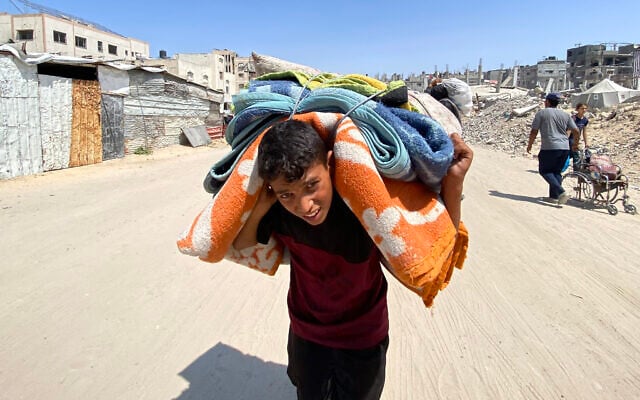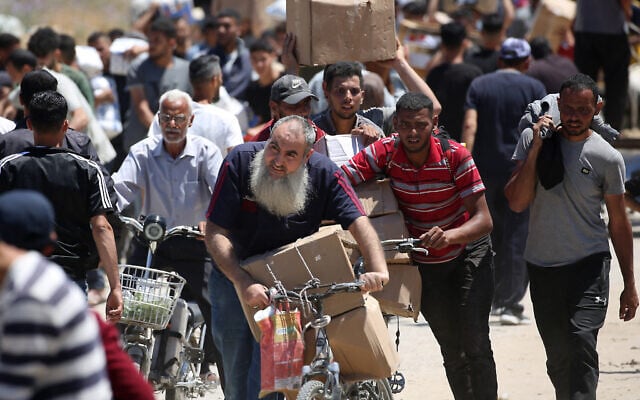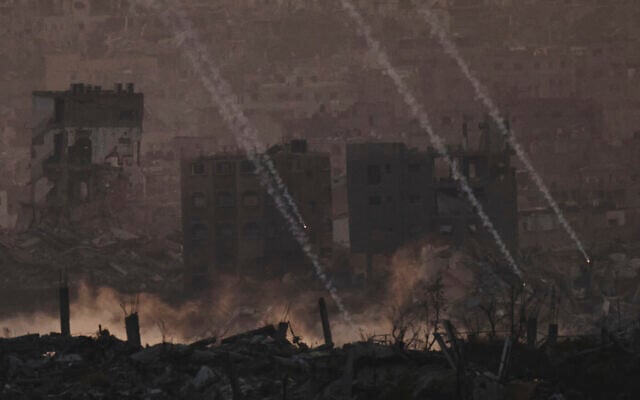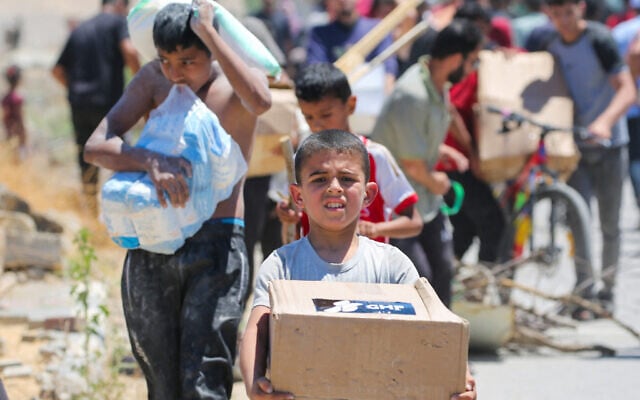


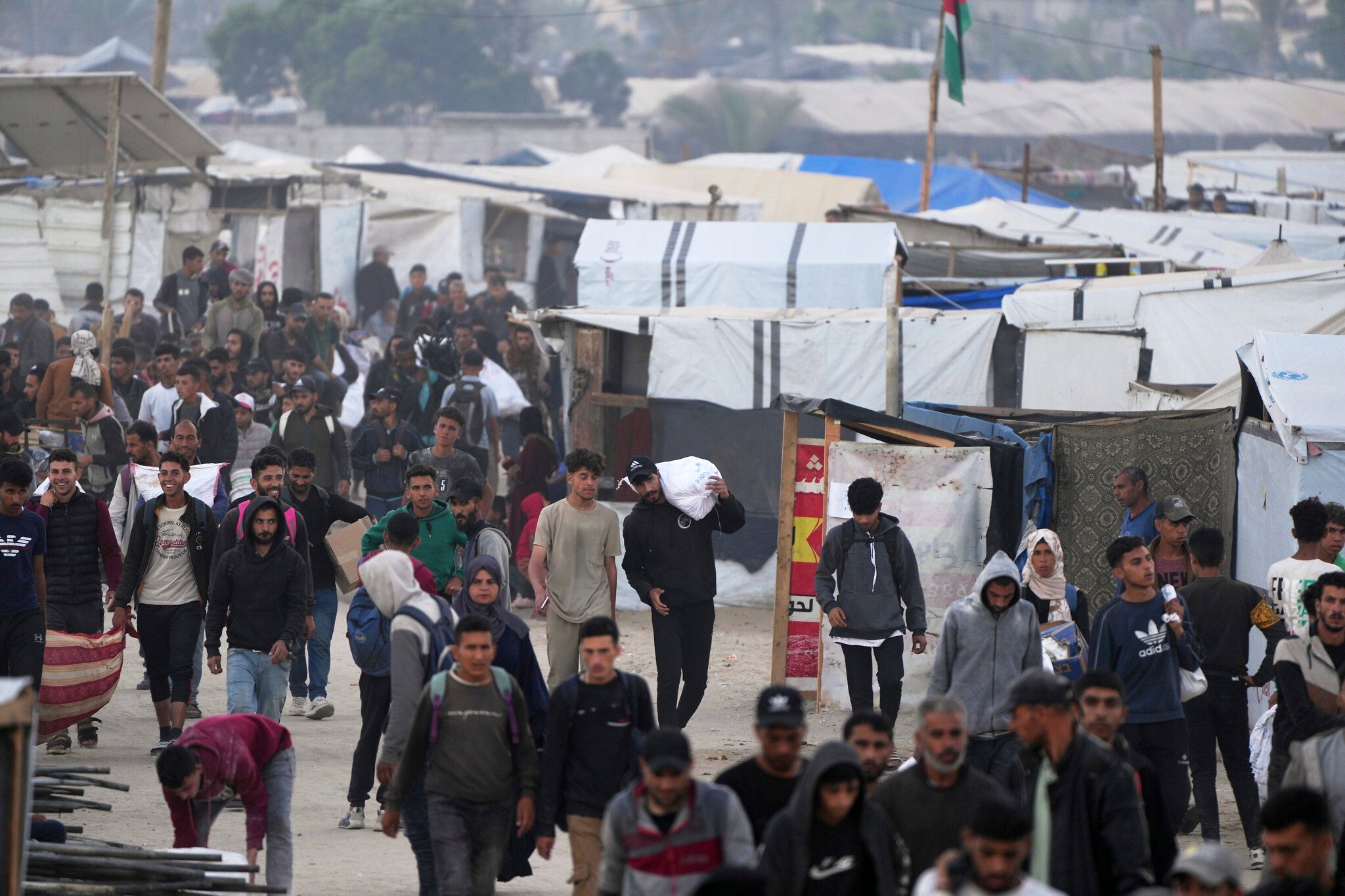
The Gaza Humanitarian Foundation announced that its aid distribution sites would not operate on Wednesday in order to give time for the US- and Israeli-backed organization to carry out logistical work needed to accommodate larger crowds.
The extra day will also give the IDF time to prepare safer access routes to distribution sites before operations resume on Thursday, a GHF spokesperson said, after a third consecutive day saw a mass-casualty incident targeting Palestinians seeking to pick up boxes of food.
A GHF spokesperson said the organization will hold talks with the IDF aimed at boosting security measures at distribution sites.
Following the GHF announcement, the IDF’s Arabic-language spokesperson issued a statement warning Palestinians that travel on roads leading to the aid sites would be prohibited in the interim, as they are considered combat zones.
On Sunday, Monday and Tuesday, the IDF opened fire toward Palestinians who had approached troops after straying off a pre-approved path for reaching a Rafah distribution site.
Hamas health authorities claimed 31 people were killed and 170 others were wounded in the Sunday incident; three people were killed and 35 were wounded in the Monday incident; and 27 were killed and 90 were wounded in the Tuesday incident.
The figures were not verified, and the IDF asserted on Tuesday that Hamas was inflating them.
A senior IDF official told the Axios news site Tuesday that initial findings from a probe into the shootings near indicated that Palestinians mistakenly approached soldiers after getting lost on their way to the aid center.
The UN and aid organizations warned for weeks that such incidents would result from forcing Gaza’s entire population of two million people to travel long distances and pass through IDF lines in order to reach the GHF’s distribution sites.
Israel and the US have promoted the GHF model, arguing that it can effectively box Hamas out of the aid distribution process after the terror group managed to divert much of the aid that was coming in through the UN and other international organizations — charges that those groups have denied.
GHF has been operating between one and three sites each day since beginning operations on May 26. Two of the sites are located in the southern Gaza city of Rafah, while a third is located adjacent to the Netzarim corridor in central Gaza.
While much of Gaza’s population of about two million is located in southern Gaza, their tent encampments are not adjacent to GHF distribution sites, and those in northern and central Gaza have reported having to walk dozens of kilometers, sometimes while dodging IDF fire, in order to pick up a box of food.
GHF has said that it is working to open new distribution sites, including in northern Gaza, but it has not given any timetable, as the tens of thousands of Palestinians amassing at distribution sites indicate that the need for food in Gaza remains dire.
Israel blocked any aid from entering the Strip for almost all of March, April and May in an effort to squeeze Hamas in the ongoing hostage negotiations, but IDF officials privately acknowledged that the blockade brought the Strip to the brink of starvation.
For its part, GHF has boasted being able to distribute over 7 million meals from over 100,000 boxes distributed over nine days. The boxes contain mostly dry food products, though, that require cooking equipment and community kitchens, which are very limited in the Strip, as fuel remains very limited.
Separately on Tuesday, UN diplomats told Reuters that 10 Security Council members have asked the 15-member body to hold a Wednesday vote on a draft resolution that demands “an immediate, unconditional and permanent ceasefire in Gaza respected by all parties.”
The draft text, seen by Reuters, also demands the release of all hostages held by Hamas and others, and the immediate lifting of all restrictions on the entry of humanitarian aid into Gaza and its safe and unhindered distribution at scale, including by the UN throughout the enclave.
A resolution needs nine votes in favor and no vetoes by the permanent members – the United States, Russia, China, Britain or France – to pass.
This one is likely to be vetoed by the US, though, which has ardently defended Israel at the UN, while placing sole blame for the conflict on Hamas.
Emanuel Fabian and Reuters contributed to this report.

